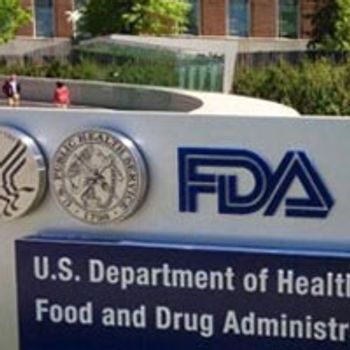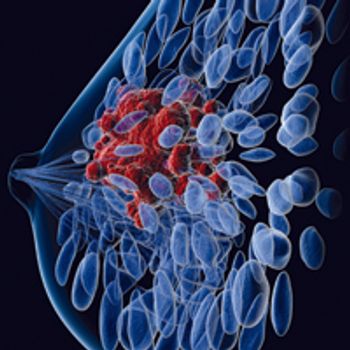
Pembrolizumab (Keytruda) has been granted accelerated approval for certain solid tumors.

Pembrolizumab (Keytruda) has been granted accelerated approval for certain solid tumors.

The FDA has granted approval to pembrolizumab (Keytruda) for the treatment of patients with locally advanced or metastatic urothelial carcinoma.

The FDA has granted an accelerated approval to pembrolizumab (Keytruda) for use in combination with pemetrexed plus carboplatin as a frontline treatment for patients with non-small cell lung cancer (NSCLC).

The FDA has granted accelerated approval to avelumab (Bavencio) for the treatment of patients with locally advanced or metastatic urothelial carcinoma.

The FDA has granted accelerated approval for the PD-L1 inhibitor durvalumab for the treatment of locally advanced or metastatic urothelial carcinoma.

The FDA has granted accelerated approval to brigatinib for patients with metastatic ALK-positive non-small cell lung cancer (NSCLC) resistant to prior crizotinib (Xalkori).

The FDA has approved midostaurin (Rydapt) for the treatment of adult patients with acute myeloid leukemia.

The FDA has approved regorafenib as a second-line treatment for patients with unresectable hepatocellular carcinoma, who had previously received sorafenib.

The Food and Drug Administration (FDA) granted an accelerated approval to atezolizumab (Tecentriq) to be used as a frontline treatment for cisplatin-ineligible patients with locally advanced or metastatic urothelial carcinoma (mUC).

Subcutaneous co-formulation of rituximab for treatment of patients with certain types of lymphoma and leukemia advances toward approval.

The FDA has granted approval for the PARP inhibitor niraparib for maintenance treatment of patients with recurrent epithelial ovarian, fallopian tube or primary peritoneal cancer who are in complete or partial repsponse to platinum-based chemotherapy.

The FDA has granted an accelerated approval to immunotherapy agent avelumab for the treatment of metastatic Merkel cell carcinoma.

The FDA has granted accelerated approval to pembrolizumab for treatment of patients with hodgkin lymphoma.

The PARP inhibitor olaparib improved PFS when compared to standard chemotherapy in patients with BRCA-positive breast cancer, according to findings from the phase III OLYMPIAD trial.

The FDA has granted approval to ribociclib (Kisqali) for firstline treatment of HR+/HER2- breast cancer.

Denosumab demonstrated noninferiority to zoledronic acid at delaying the time to the first skeletal-related event (SRE) in patients with multiple myeloma.

Adding pertuzumab to trastuzumab and chemotherapy reduced the risk of recurrence of invasive disease or death in patients with HER2-positive early breast cancer.

The FDA has granted approval for telotristat ethyl in treating carcinoid syndrome diarrhea in patients with neuroendocrine tumors (NETs).

The FDA has granted approved maintenance lenalidomide for multiple myeloma

The recent phase III OLYMPIAD trial findings show improved progression-free survival from olaparib in patients with BRCA-positive, HER2-negative breast cancer.


DNA from circulating tumors in patients with metastatic castraction-resistant prostate cancer (mCRPC) could assist in personalizing treatment.

Patients with esophogeal cancers who received induction chemotherapy, followed by PET imaging to determine whether alternative chemotherapy was needed had improved pathologic complete response rates

Subcutaneous delivery of daratumumab for patients with relapsed/refractory multiple myeloma was comparable in efficacy and safety to the intravenous dose.

FDA grants approval to rucaparib for BRCA-positive, advanced ovarian cancer.

FDA has given approval for daratumumab triplet therapy for patients with relapsed multiple myeloma

Nivolumab (Opdivo) has been granted FDA approval for the treatment of metastatic or squamous cell carcinoma of the head and neck (SCCHN).

Pembrolizumab gains an FDA approval for frontline therapy of non-small cell lung cancer (NSCLC).

Immunotherapy agent atezolizumab approved by FDA for treatment of NSCLC.

Blinatumomab (Blincyto) gained accelerated approval by the FDA for the treatment of pediatric and adolescent patients with Philadelphia chromosome-negative (Ph-) relapsed or refractory B-cell precursor acute lymphoblastic leukemia (ALL)